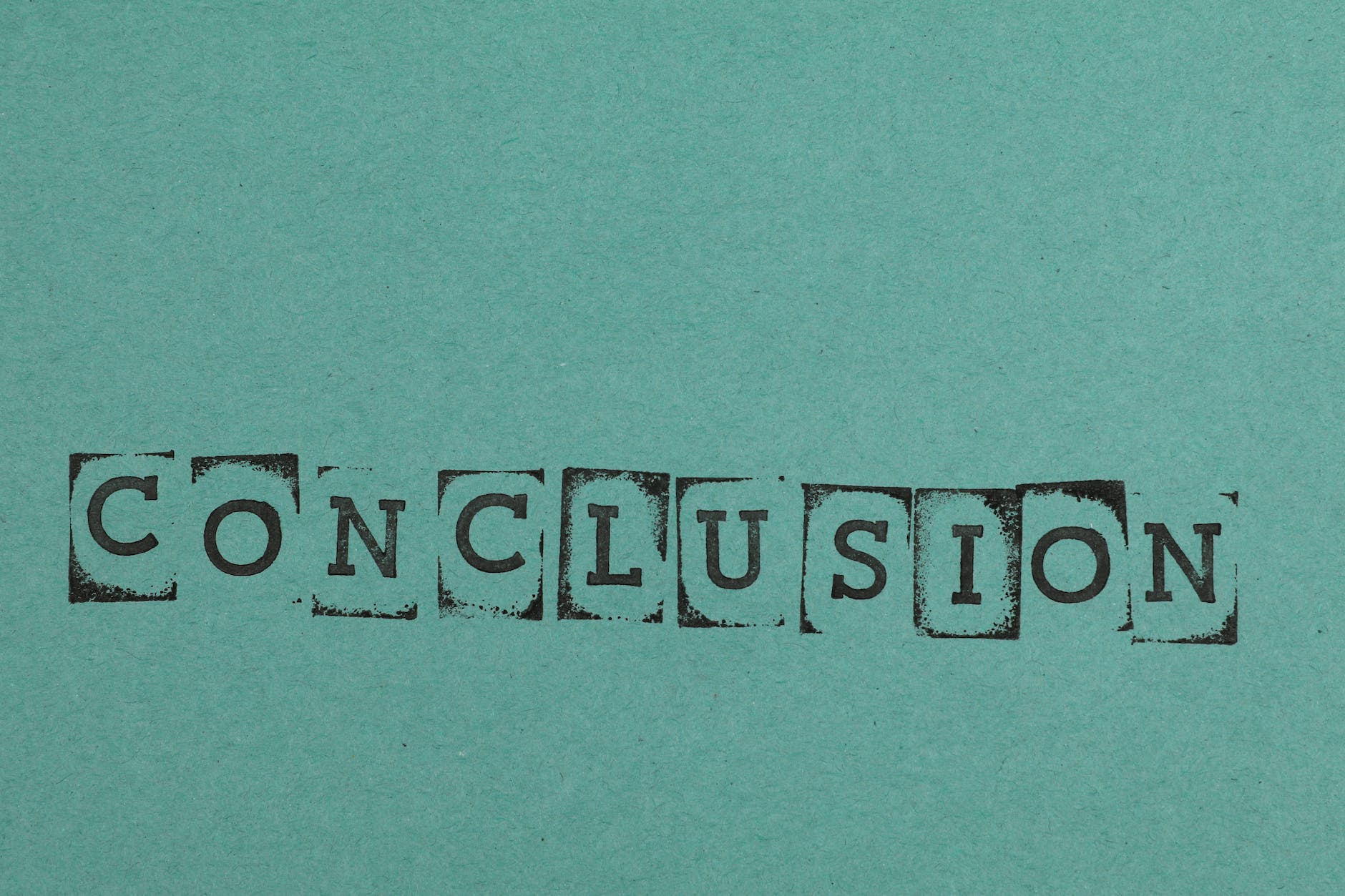Communication is an essential aspect of our daily lives, and mastering it can lead to deeper connections with others. Effective communication skills are not only crucial for personal relationships, but they are also essential in the workplace. Being able to communicate effectively can help you build stronger relationships with your colleagues, clients, and customers. In this ultimate guide, we will explore the different aspects of mastering communication skills for deeper connections.

Understanding communication skills is the first step towards mastering them. Communication skills refer to the ability to convey information effectively and clearly. Effective communication involves not only the words we use but also our tone of voice, body language, and listening skills. In this guide, we will delve into the psychology behind effective communication and explore the different communication styles that people use. We will also provide practical exercises to help you improve your communication skills.
Key Takeaways:
- Effective communication skills are crucial for building deeper connections with others, both personally and professionally.
- Communication skills involve not only the words we use but also our tone of voice, body language, and listening skills.
- In this guide, we will explore the different aspects of mastering communication skills, including understanding communication skills, mastering verbal and non-verbal communication, overcoming communication barriers, and practical exercises to improve your communication skills.
Understanding Communication Skills
Communication is the foundation of human interaction. It is the process of exchanging information, ideas, and emotions between individuals. Effective communication skills are essential for building deeper connections, whether it is in personal or professional relationships.
To master communication skills, we must first understand what they are. Communication skills are the ability to convey information and ideas in a clear and concise manner. It involves both verbal and nonverbal communication, including body language, tone of voice, and facial expressions.
Active listening is also an important aspect of communication skills. It involves paying attention to what the other person is saying and responding appropriately. It helps to build trust and understanding between individuals.
In addition, mastering communication skills also involves developing a strong communication style. This style reflects our personality and has a significant impact on how our messages are received by others. It requires us to be aware of our communication strengths and weaknesses and to adapt our style to different situations and audiences.
By understanding communication skills, we can begin to develop and improve our ability to connect with others on a deeper level. It takes practice and effort, but the rewards are worth it.
Related Posts:
- Embark on Your Inner Expedition: Uncover Your Values and Passions
- Unleash the Power of Giving: How Altruism Amplifies Happiness
- Mastering Self-Discipline: Be Your Own Hero and Unlock Your Potential
- Ultimate Guide to Unlocking the Power of Gratitude: A Step-by-Step Path to Lasting Happiness
- How to Develop Positive Perception: A Step-by-Step Guide to Cultivating a Positive Mindset
Importance of Effective Communication
Effective communication skills are essential for building deeper connections with others, both in our personal and professional lives. Communication is the foundation of all relationships, and without it, misunderstandings, conflicts, and misinterpretations can occur. When we communicate effectively, we can share our thoughts, feelings, and ideas with others, and we can understand their perspectives and needs as well.
In our personal lives, effective communication can help us build stronger and more meaningful relationships with our family, friends, and loved ones. By expressing ourselves clearly and listening actively, we can deepen our connections and foster trust, respect, and empathy.
In the professional world, effective communication is crucial for success. Whether we are leading a team, collaborating with colleagues, or communicating with clients or customers, we need to be able to convey our ideas and information clearly, concisely, and persuasively. Effective communication can help us build trust, establish credibility, and achieve our goals.
To communicate effectively, we need to develop a range of communication skills, including active listening, effective speaking, good grammar and vocabulary, and non-verbal communication. We also need to be aware of our audience and adjust our communication style and tone to meet their needs and expectations.
In summary, effective communication is essential for building deeper connections with others, both in our personal and professional lives. By developing our communication skills, we can express ourselves clearly, listen actively, and understand others’ perspectives and needs. This can help us build stronger relationships, achieve our goals, and enhance our overall quality of life.
Related Posts:
The Psychology Behind Effective Communication
Effective communication is not just about conveying information accurately, but also about creating deeper connections with the people we interact with. To achieve this, we need to understand the psychology behind effective communication.
Understanding Cognitive Biases
Our brains are wired to take shortcuts when processing information, which can result in cognitive biases. These biases can affect our communication by causing us to make assumptions, misinterpret information, or ignore important details. By understanding these biases, we can become more aware of them and learn to overcome them.
Emotional Intelligence in Communication
Emotional intelligence is the ability to recognize and manage our own emotions, as well as the emotions of others. It is a crucial aspect of effective communication because it allows us to connect with others on a deeper level and understand their perspectives. By developing our emotional intelligence, we can become better communicators and build stronger relationships.
Motivation and Communication
Motivation plays a key role in communication because it determines our level of engagement and willingness to participate. By understanding what motivates us and others, we can tailor our communication to be more effective and engaging.
Building Trust and Rapport
Trust and rapport are essential for effective communication because they create a safe and comfortable environment for people to share their thoughts and feelings. By building trust and rapport, we can create deeper connections with others and improve the quality of our communication.
Handling Conflict and Difficult Conversations
Conflict and difficult conversations are inevitable in any relationship, but they can be managed effectively with the right communication skills. By learning how to handle conflict and difficult conversations, we can improve our relationships and create more positive outcomes.
Related Posts:
- Mind Over Matter: Crush Negative Thoughts and Live Happier
- Meditation Mastery: Beginner’s Blueprint to Inner Peace
- Mastering Mindfulness: The Ultimate Guide to Boosting Well-being by Living in the Now
- Conquer the Emotional Landscape: Your Ultimate Guide to Emotional Intelligence
Communication Styles
Understanding communication styles is crucial to mastering effective communication. There are four main communication styles: aggressive, passive, passive-aggressive, and assertive. Each style has its own unique characteristics and can be used in different situations.
Aggressive Communication
Aggressive communication involves being forceful, dominant, and self-centered. People who communicate aggressively often interrupt others, use a loud or demanding tone, and may resort to personal attacks. This style can be effective in certain situations, such as when quick action is needed or when dealing with a difficult person, but it can also damage relationships and create a negative work environment.
Passive Communication
Passive communication involves being submissive, accommodating, and avoiding conflict. People who communicate passively often have difficulty expressing their needs and may allow others to take advantage of them. This style can be effective in certain situations, such as when trying to maintain harmony or when dealing with a sensitive topic, but it can also lead to resentment and frustration.
Passive-Aggressive Communication
Passive-aggressive communication involves being indirect, sarcastic, and manipulative. People who communicate in a passive-aggressive style may appear cooperative on the surface, but they often use subtle tactics to get what they want or to express their anger. This style can be effective in certain situations, such as when dealing with a difficult or unresponsive person, but it can also create confusion and mistrust.
Assertive Communication
Assertive communication involves being clear, direct, and respectful. People who communicate assertively express their needs and opinions while also taking into account the needs and opinions of others. This style can be effective in most situations, as it promotes open and honest communication and can lead to positive outcomes.
It’s important to note that communication styles are not fixed and can vary depending on the situation. By understanding your own communication style and recognizing the styles of others, you can adapt your approach to achieve better communication and deeper connections.
Mastering Verbal Communication
Effective verbal communication is an essential skill that can help us build deeper connections with others. It involves not only speaking clearly and articulately but also actively listening and paying attention to the tone of our voice. In this section, we’ll explore some key strategies for mastering verbal communication.
Active Listening
Active listening is a critical component of effective verbal communication. It involves not only hearing the words being spoken but also interpreting the underlying message and responding appropriately. To become a better listener, we need to practice being present in the moment, avoiding distractions and showing empathy towards the speaker.
One way to practice active listening is to ask open-ended questions that encourage the speaker to elaborate on their thoughts and feelings. We can also use nonverbal cues like nodding our head and maintaining eye contact to show that we’re engaged in the conversation.
Articulation and Clarity
Speaking clearly and articulately is another crucial aspect of effective verbal communication. To improve our articulation, we can practice enunciating our words and speaking slowly and deliberately. We can also work on expanding our vocabulary and using language that is appropriate for our audience.
Clarity is also essential in verbal communication. We can achieve clarity by organizing our thoughts before speaking, avoiding jargon and technical language, and using concrete examples to illustrate our points.
Tone of Voice
The tone of our voice can convey a lot of information about our emotions and intentions. To master our tone of voice, we need to practice speaking with confidence and authority. We can also work on modulating our tone to match the situation and the audience. For example, we might use a more formal tone in a business setting, while a more casual tone might be appropriate in a social setting.
By mastering these strategies for verbal communication, we can build deeper connections with others and achieve greater success in our personal and professional lives.
Related Posts:
Mastering Non-Verbal Communication
Non-verbal communication is a crucial aspect of effective communication. It is the process of conveying messages through body language, eye contact, and facial expressions. Mastering non-verbal communication can help us establish deeper connections with others, build trust, and convey our intentions more effectively.
Body Language
Body language is the use of physical movements, gestures, and postures to convey a message. It is an essential aspect of non-verbal communication. Our body language can reveal our emotions, attitudes, and intentions. By mastering our body language, we can create a positive impression and communicate more effectively.
Some tips for mastering body language include:
- Stand up straight and maintain good posture
- Use open gestures to convey openness and confidence
- Mirror the body language of the person you are communicating with to establish rapport
- Avoid crossing your arms or legs, as this can convey defensiveness or disinterest
Eye Contact
Eye contact is the act of looking directly into someone’s eyes while communicating. It is a powerful tool for establishing trust and building connections. Eye contact can convey sincerity, interest, and confidence.
Some tips for mastering eye contact include:
- Maintain eye contact while speaking to convey sincerity and confidence
- Look away occasionally to avoid staring or making the other person uncomfortable
- Use eye contact to establish rapport and build trust
- Avoid looking down or away, as this can convey disinterest or dishonesty
Facial Expressions
Facial expressions are the use of facial movements to convey emotions and attitudes. They are an essential aspect of non-verbal communication. Our facial expressions can reveal our emotions, attitudes, and intentions.
Some tips for mastering facial expressions include:
- Smile to convey warmth and friendliness
- Use appropriate expressions to convey your emotions and attitudes
- Avoid frowning or scowling, as this can convey negativity or hostility
- Use facial expressions to reinforce your verbal message
By mastering non-verbal communication, we can establish deeper connections with others, build trust, and convey our intentions more effectively.
Mastering Written Communication

Written communication is an essential skill that can help us convey our ideas and thoughts effectively. It is a crucial aspect of communication that we need to master to build deeper connections with others. In this section, we will discuss some tips on how to master written communication.
Writing Clearly
Writing clearly is the key to effective written communication. When we write, we need to ensure that our message is clear, concise, and easy to understand. We can achieve this by using simple words and sentences, avoiding jargon, and being direct to the point.
Using Correct Grammar
Using correct grammar is essential in written communication. It helps us convey our message accurately and professionally. We need to ensure that our sentences are grammatically correct, our tenses are consistent, and our punctuation is accurate. We can use grammar tools such as Grammarly to help us check our grammar and punctuation.
Effective Email Communication
Email communication is a common form of written communication in the workplace. To communicate effectively through email, we need to ensure that our emails are clear, concise, and professional. We can achieve this by using a proper salutation, keeping our message brief, and using a professional tone. We should also ensure that we proofread our emails before sending them to avoid any errors.
In conclusion, mastering written communication is essential to build deeper connections with others. By writing clearly, using correct grammar, and practicing effective email communication, we can improve our written communication skills and convey our message effectively.
Actions for Effective Communication
Effective communication is essential for deeper connections and understanding in relationships, whether personal or professional. Here are some actions we can take to improve our communication skills:
Mindful Speaking
We can practice mindful speaking by being intentional with our words and focusing on the present moment. This means avoiding distractions, such as checking our phones or thinking about what we want to say next, and instead actively listening to the person speaking to us. Mindful speaking also involves being aware of our tone of voice and body language, as these can greatly impact how our message is received.
Structured Communication
Structured communication involves organizing our thoughts and ideas before speaking. This can be done by creating an outline or bullet points to guide our conversation. Structured communication helps us stay on topic and ensures that our message is clear and concise.
Avoiding Misunderstandings
We can avoid misunderstandings by checking for understanding and asking questions when necessary. This means repeating what we have heard to confirm that we have understood correctly and asking for clarification when something is unclear. Avoiding assumptions and jumping to conclusions can also help prevent misunderstandings.
Respectful Language
Using respectful language is important in effective communication. This means avoiding derogatory or offensive language and instead using words that show respect and consideration for the person we are speaking to. It also means avoiding language that is dismissive or belittling, as this can damage relationships and hinder effective communication.
Clarity and Specificity
Being clear and specific in our communication helps ensure that our message is understood. This means avoiding vague language and instead using concrete examples and specific details to convey our message. Clarity and specificity also involves avoiding jargon or technical language that may be unfamiliar to the person we are speaking to.
One Topic at a Time
Focusing on one topic at a time helps prevent confusion and ensures that our message is received clearly. This means avoiding jumping from topic to topic and instead staying focused on the current conversation. It also means avoiding bringing up past issues or unrelated topics, as this can derail the conversation and hinder effective communication.
Ownership of Feelings and Actions
Taking ownership of our feelings and actions is important in effective communication. This means avoiding blaming or accusing language and instead using “I” statements to express our feelings and thoughts. It also means taking responsibility for our actions and apologizing when necessary.
Effective Feedback
Providing effective feedback involves being specific and constructive in our criticism. This means avoiding personal attacks and instead focusing on the behavior or action that needs improvement. Effective feedback also involves offering suggestions for improvement and recognizing positive behavior.
Understanding Non-Verbal Cues
Non-verbal cues, such as body language and tone of voice, can greatly impact how our message is received. Understanding non-verbal cues involves being aware of our own body language and tone of voice, as well as being able to interpret the non-verbal cues of others. This can help us better understand the message being conveyed and respond appropriately.
By implementing these actions for effective communication, we can improve our communication skills and deepen our connections with others.
Communication for Deeper Connections
Effective communication is the foundation of building lasting connections. It is not just about conveying information, but also about understanding and empathizing with others. In this section, we will explore the different aspects of communication that can help us forge deeper connections with others.
Emotional Communication
Emotional communication is the ability to express and understand emotions in a healthy and constructive way. It involves being aware of our own emotions and the emotions of others, and being able to communicate them effectively. This requires active listening, empathy, and the ability to regulate our own emotions.
To improve our emotional communication skills, we can practice using “I” statements to express our feelings, actively listening to others without interrupting or judging, and paying attention to nonverbal cues such as facial expressions and body language.
Empathetic Listening
Empathetic listening is the ability to listen to others with an open mind and heart. It involves putting aside our own biases and judgments and truly trying to understand the other person’s perspective. This can help us build stronger connections with others and foster mutual respect and trust.
To practice empathetic listening, we can focus on the speaker’s words and tone of voice, ask open-ended questions to clarify their meaning, and reflect back what we have heard to ensure understanding.
Assertive Communication
Assertive communication is the ability to express ourselves in a clear and confident manner while also respecting the needs and feelings of others. It involves being able to communicate our thoughts, feelings, and opinions effectively without being aggressive or passive.
To practice assertive communication, we can use “I” statements to express our thoughts and feelings, stick to the facts and avoid making assumptions, and be open to feedback and compromise.
Related Posts:
- Fall in Love with Yourself: The Ultimate Journey to Self-Love and Enlightenment
- The Power of Empathy: Unlocking the Hidden Language of Human Connection
- Journey to Bliss: An Uncharted Path to Inner Serenity
- Elevate Your Self-Esteem: Master the Secrets of Inner Confidence
Overcoming Communication Barriers
Effective communication is essential for building deeper connections with others. However, communication barriers can hinder our ability to connect with others. In this section, we will discuss some common communication barriers and how to overcome them.
Emotional Barrier
Emotional barriers can arise when we are unable to express our emotions or when we misinterpret the emotions of others. To overcome emotional barriers, it is important to develop emotional intelligence. This involves being aware of our own emotions and the emotions of others, and being able to regulate our emotions in a healthy way. We can also overcome emotional barriers by practicing active listening, which involves giving our full attention to the speaker and trying to understand their perspective.
Cultural Differences
Cultural differences can also create communication barriers. To overcome these barriers, it is important to be aware of cultural differences and to adapt our communication style accordingly. This may involve using simpler language, avoiding idioms or slang, and being mindful of nonverbal cues. It is also important to avoid making assumptions about someone based on their culture or background, and to ask questions to clarify any misunderstandings.
Language Barrier
Language barriers can make it difficult to communicate with others who speak a different language. To overcome language barriers, we can use translation tools or hire a translator. It is also helpful to learn some basic phrases in the other person’s language, such as greetings and common phrases. When communicating with someone who speaks a different language, it is important to speak slowly and clearly, and to avoid using complex language or idioms.
Related Posts:
Practical Exercises to Improve Communication Skills
Improving communication skills takes practice, and there are many practical exercises that can help you become a better communicator. In this section, we’ll explore some of the best exercises to help you improve your communication skills.
Feedback and Self-Assessment
One of the most important aspects of improving your communication skills is to receive feedback and engage in self-assessment. This can be done in a variety of ways, including:
- Recording yourself speaking and watching the playback to identify areas for improvement
- Asking a friend or colleague to provide feedback on your communication style
- Engaging in self-reflection and identifying areas for improvement
By regularly engaging in feedback and self-assessment, you can identify areas for improvement and take steps to become a more effective communicator.
Public Speaking and Presentation Practice
Public speaking and presentation skills are essential for effective communication, and practicing these skills can help you become more confident and effective in your communication. Some practical exercises to improve your public speaking and presentation skills include:
- Practicing in front of a mirror or video camera
- Joining a public speaking or toastmasters group
- Volunteering to give presentations at work or in your community
By regularly practicing your public speaking and presentation skills, you can become a more effective and confident communicator.
Mindfulness and Meditation Practices
Mindfulness and meditation practices can help you become more present, focused, and attentive in your communication. Some practical exercises to improve your mindfulness and meditation skills include:
- Practicing deep breathing exercises
- Engaging in daily meditation or mindfulness practices
- Participating in yoga or other mindfulness-based practices
By regularly practicing mindfulness and meditation, you can become a more present and effective communicator.
Improving your communication skills takes time and practice, but by engaging in practical exercises like these, you can become a more effective and confident communicator.
The Power of Effective Communication: Real-Life Success Stories

At its core, effective communication is about connecting with others in a meaningful way. When we communicate effectively, we build deeper connections with those around us, whether they are team members, customers, or even strangers. Here are some real-life success stories that demonstrate the power of effective communication.
Leadership and Communication
One of the most important skills for a leader is the ability to communicate effectively. When leaders communicate clearly and authentically, they build trust and inspire their team members to achieve great things. For example, when Steve Jobs returned to Apple in 1997, he used his communication skills to rally the company around a common vision and turn it into a global powerhouse.
Conflict Resolution
Another area where effective communication is essential is in conflict resolution. When we are able to communicate our needs and feelings clearly and listen actively to others, we can resolve conflicts and build stronger relationships. For example, when Nelson Mandela was released from prison in 1990, he used his communication skills to negotiate a peaceful transition to democracy in South Africa.
Public Speaking Triumph
Public speaking is another area where effective communication can make a huge difference. When we are able to speak clearly and confidently, we can inspire and motivate others. For example, when Malala Yousafzai spoke at the United Nations in 2013, she used her communication skills to advocate for girls’ education and inspire people around the world.
Customer Service
Finally, effective communication is essential in customer service. When we are able to listen actively to our customers and respond to their needs in a timely and empathetic manner, we can build loyal customers who will return again and again. For example, when Zappos CEO Tony Hsieh decided to focus on customer service, he used his communication skills to create a company culture that prioritized customer satisfaction above all else.
In each of these success stories, the power of effective communication is clear. By mastering the art of communication, we can build deeper connections with those around us and achieve great things together.
Conclusion

Mastering effective communication is a crucial step towards forging deeper connections in both personal and professional relationships. Through active listening, we can create an environment where conversations can flourish. By fostering genuine connections, we can build bridges of understanding and empathy that can last a lifetime.
In today’s highly competitive professional landscape, effective communication skills and a strong personality are crucial for success. By mastering communication skills, we can develop a strong personality that can help us navigate through any situation with ease. We can learn how to convey our ideas, thoughts, and information in a clear and concise manner, be it orally or in writing.
At their core, crucial conversations involve high stakes, opinions vary, and emotions run strong. These interactions can define the trajectory of relationships and outcomes. By mastering crucial conversations, we can address performance issues at work or discuss differences with family members in a productive and effective manner.
Navigating the digital age, where words flow rapidly yet meaning can sometimes falter, mastering the art of communication becomes pivotal for fostering meaningful bonds. By cultivating effective communication, we can forge deeper, more meaningful connections in our relationships.
In conclusion, mastering communication skills is a lifelong process that requires patience, practice, and persistence. By incorporating the tips and strategies outlined in this guide, we can develop a strong foundation for effective communication and build deeper connections in all aspects of our lives.
Frequently Asked Questions

What are the essential communication skills for deeper connections?
To establish deeper connections with others, it is important to have essential communication skills such as active listening, empathy, clarity, and assertiveness. Active listening involves giving your full attention to the speaker, understanding their perspective, and responding appropriately. Empathy is the ability to understand and share the feelings of others. Clarity is the ability to communicate your message clearly and effectively. Assertiveness is the ability to express your thoughts and opinions confidently and respectfully.
How can effective communication improve relationships?
Effective communication is crucial in building and maintaining healthy relationships. It helps to establish trust, respect, and understanding between individuals. Effective communication involves active listening, empathy, and clear communication. By using these skills, individuals can express their thoughts, feelings, and needs in a way that is easily understood by others.
What are some common communication barriers to avoid?
Some common communication barriers include language barriers, cultural differences, emotional barriers, and physical barriers. To avoid these barriers, individuals should be aware of their own communication style and adapt it to the needs of others. They should also be open to feedback and willing to make adjustments in their communication style.
How can I improve my public speaking skills?
To improve your public speaking skills, it is important to practice regularly and seek feedback from others. You can also improve your skills by studying the techniques of successful speakers, such as their use of body language, tone of voice, and pacing. Additionally, it is important to prepare thoroughly before speaking and to be confident in your message.
What are some tips for active listening?
To practice active listening, it is important to give your full attention to the speaker, maintain eye contact, and avoid interrupting. It is also important to ask clarifying questions and to summarize what the speaker has said to ensure understanding. Finally, it is important to respond appropriately to the speaker’s message, whether through verbal or nonverbal communication.
How can I communicate assertively without being aggressive?
To communicate assertively without being aggressive, it is important to express your thoughts and opinions in a clear and respectful manner. This involves using “I” statements and avoiding blame or judgment. It is also important to listen actively to the other person’s perspective and to be open to feedback.
How can I improve my body language for better communication?
To improve your body language for better communication, it is important to maintain good posture, make eye contact, and use appropriate gestures. It is also important to be aware of your facial expressions and to avoid negative body language such as crossed arms or slouching.
What are some strategies for overcoming stage fright in public speaking?
To overcome stage fright in public speaking, it is important to practice regularly and to prepare thoroughly before speaking. It can also be helpful to visualize a successful presentation and to focus on your message rather than your nerves. Additionally, deep breathing exercises and positive self-talk can help to calm nerves and boost confidence.
How can I adapt my communication style for diverse audiences?
To adapt your communication style for diverse audiences, it is important to be aware of cultural differences and to adjust your language and tone accordingly. It is also important to be respectful and open-minded, and to avoid making assumptions about others based on their background or beliefs.
What role does active listening play in effective communication?
Active listening is a crucial component of effective communication. It involves giving your full attention to the speaker, understanding their perspective, and responding appropriately. Active listening helps to establish trust, respect, and understanding between individuals and can lead to deeper connections and more successful outcomes.
Can you provide tips for managing conflicts through communication?
To manage conflicts through communication, it is important to remain calm and respectful, and to focus on finding a mutually beneficial solution. It is also important to listen actively to the other person’s perspective and to be open to feedback. Additionally, using “I” statements and avoiding blame or judgment can help to de-escalate conflicts and find common ground.














Pingback: Stronger Together: The Ultimate Guide to Building Resilient Veteran Families – Soulminate